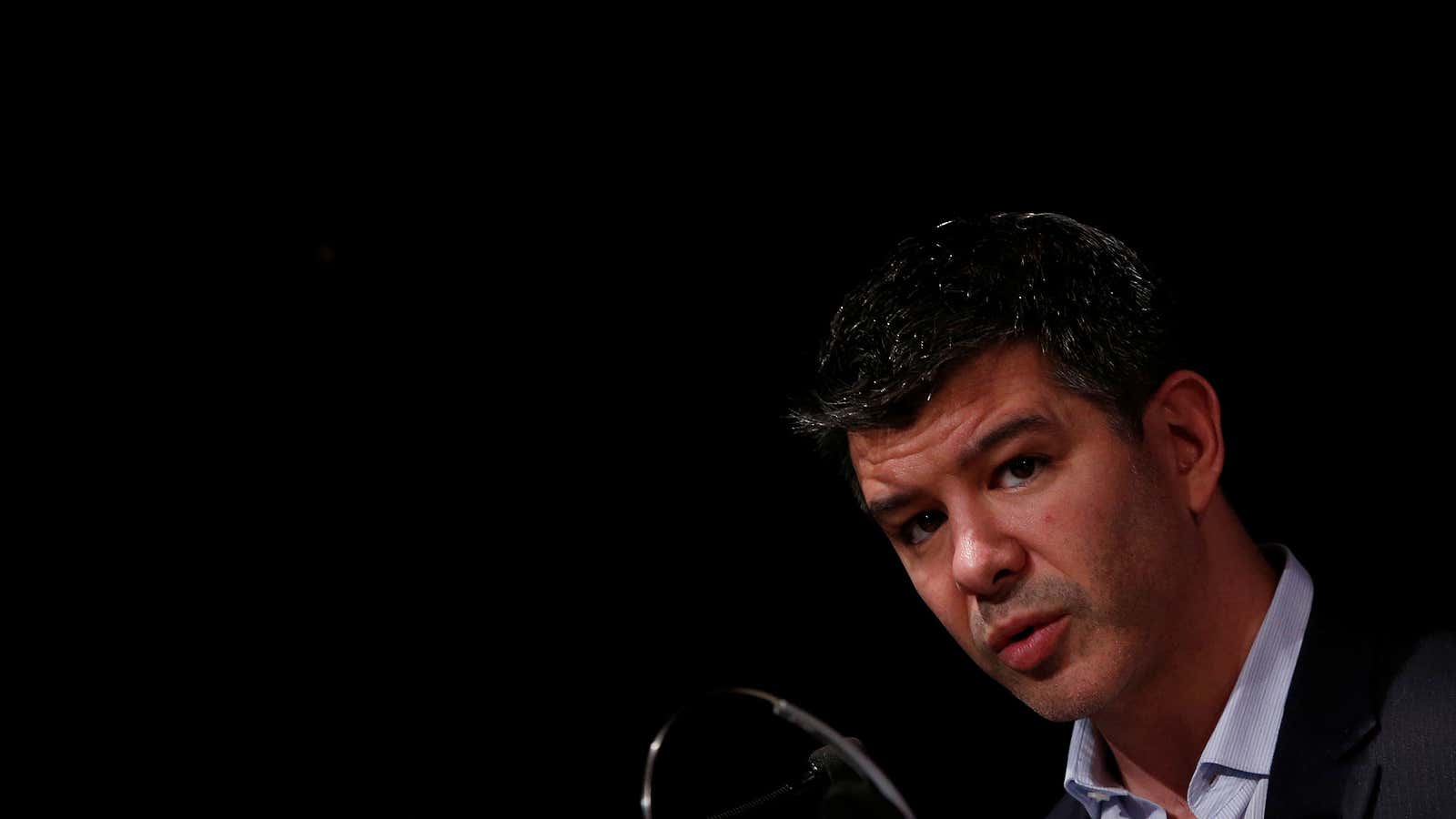As part of its exhaustive profile (paywall) of Uber CEO Travis Kalanick, the New York Times included one particularly telling detail: at an outing to a strip club with a group of married couples, Kalanick “pulled out a laptop to work on a spreadsheet, crunching Uber’s numbers while friends watched the dancers onstage.”
The anecdote tells us that Kalanick is obsessively driven with making the ride-sharing app a success—focused to the point of ignoring obvious distractions—and that he’s not particularly concerned with conforming to expectations. That includes his strip-club behavior, his preference for pairing red shoes with pink socks, and his disregard for the normal conventions of business.
The Times report suggests that Kalanick, 40, doesn’t just tolerate rule breaking, but encourages if it gives the company an edge over its rivals, regulators, or drivers. For example, it reportedly violated Apple’s rules by tagging and tracking iPhones even after the phones are erased. It also overlooks misbehavior among employees. A high-performing manager who threw a coffee mug at an employee wasn’t disciplined, even though the incident was reported to human resources.
Uber has a pattern of flaunting municipal regulations, and employs software to evade detection from officials seeking to enforce local rules. The company uses psychological tricks to manipulate drivers into working longer hours, lures them into exploitative car-leasing agreements. A former engineer has accused the company of fostering a culture of sexist and abusive behavior, and only when Kalanick’s own outburst against an Uber driver was captured on video did he agree the company’s management needed fixing.
The long list of transgressions have helped fuel a #deleteUber campaign and emboldened the company’s critics. Kalanick and his backers have made a sizable bet that Uber represents the future of urban transportation. So far, that bet is paying off. Ride sharing appears here to stay, and Uber is valued at close to $70 billion. But in his drive to dominate, and his heedlessness to rules and conventions, Kalanick risks jeopardizing everything he has fought to build.
Updated: In an email, Uber said it doesn’t track iPhones after they’re wiped, as was initially described in the New York Times, but logs them so they can’t be used by fraudsters who repeatedly erase the data and create new identities to avoid paying for rides.
